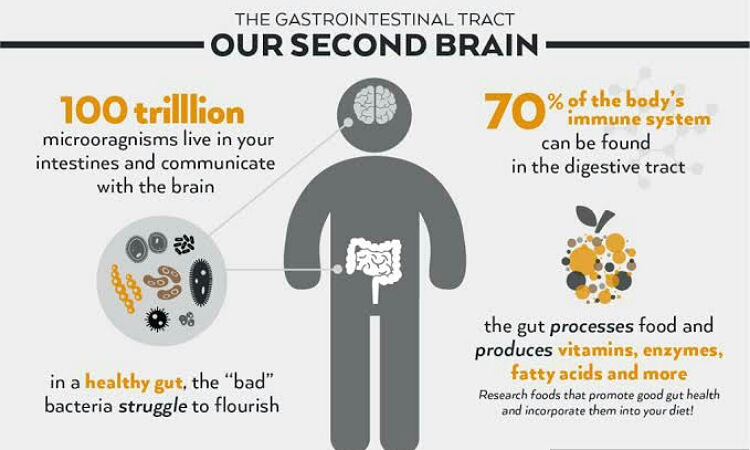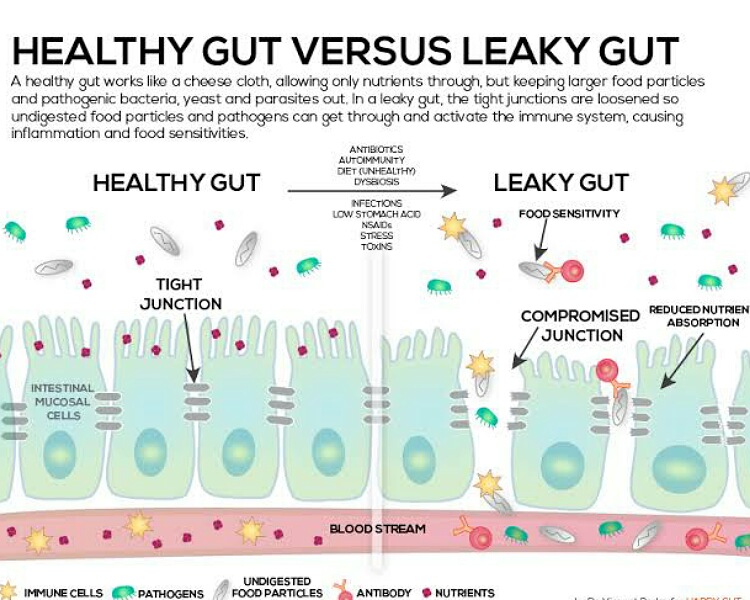There are a significant number of people in the world who get repeatedly infected. They pump vitamin C pills into their body with no benefits. But do you know that a bad gut health could also be the reason for it.
Repeated coughs and colds
The winter season brings with it various types of viruses. While these might affect all people, there are some people who are more prone to the attack of these viruses. They get frequent coughs and colds. And these remain even though they push in a lot of immunity boosters into their body including zinc and vitamin C supplements.

These supplements might help a bit. But more important than these pills is the gut health. A good gut health keeps viruses away whereas a bad gut microbiome implies repeated infections and low immunity.
Gut health and immunity
Gut has a huge surface area. And this part of the body harbors most of the immunity in it. More than 80% of the immunity of the body resides in the digestive system. Nutritionist Marjolein Dutry van Haeften states:
“The gut functions as a big part of the immune system for various reasons. Firstly, it is a literal barrier to the outside world. The entire lining of the gut (from the mouth all the way down the intestinal tract) is lined with a mucosal layer that functions to protect us from viruses, bacteria, fungi.”

In the gut microbiome, various organisms remain in harmony and balance with the person’s body. Marjolein adds:
“Our microbiome and body work together to recognise disease-causing agents and set them apart from harmless foreign material.”
Therefore, when the digestive system does not have a healthy bacterial flora, it hampers the immunity and causes various diseases including frequent infections and autoimmune diseases.
How to boost immunity?
Foods to enhance the immunity in the gut would help reduce infections and autoimmune diseases. Further, Marjolein explains:
“When it comes to nutrients that support gut health, we also need to be able to absorb them well – so if the gut wall is compromised, it is likely that absorption of nutrients from food is impacted as well. Bit of a vicious cycle.”
Eat foods to nourish the gut epithelium
Marjolein asserts that foods like bone broth, marshmallow root tea and lion’s mane mushrooms nourish the gut epithelium. Zinc, vitamins A and D and vitamin C act similarly. Zinc is present in chick peas and lentils. Whereas oily fish like tuna and salmon are rich in vitamin D. All colored fruits and vegetables contain vitamin A. Probiotics also help. Marjolein states:
“Foods which are prebiotic and probiotic are also important to support the diversity and health of the gut microbiome, contributing to a healthy gut environment and healthy immune response.”

Stress relief and good adequate sleep
Marjolein explains that stress can cause increased susceptibility:
“Often, stress on the body is playing a role,”
“If we aren’t getting enough restful downtime and good quality sleep, this has an impact on our gut,”
Vitamins levels in blood
Often, though people take nutrient rich foods, absorption is faulty. On this, Marjolein says:
“Often when clients are low in key minerals and vitamins, there is an issue with absorption. This means that you can be eating an incredibly diverse and health-promoting range of foods, but you simply aren’t breaking down and absorbing the foods effectively.”
Hydration level
Proper hydration promotes healthy gut and microbiome.
Collagen
Read here: What is an alkaline diet? Effectiveness, safety, and drawbacks!
Collagen improves gut lining. But Marjolein cautions:
“That’s where things like collagen may come in. But the thing with collagen is that it’s really abundant in the body, and your body is going to prioritise it where it needs it first. So, it might need it to go to joints or it may need to go to other connective tissues.”